The Evil Has Landed: Villains Could Be Much Like You…or Even Me
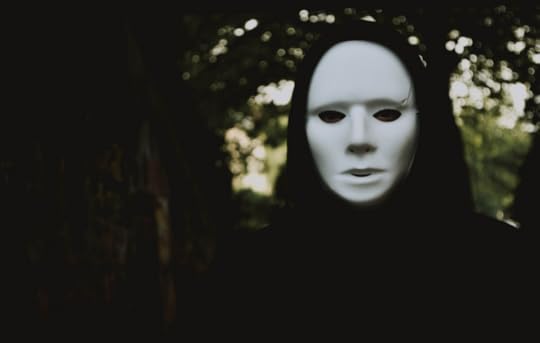
Evil has been one of the most fascinating topics among humans since we created the ability to have heated conversations. Humans would gather to argue over roasted mammoth after the hunt was over.
Was Urg’s son, Perry, simply hard to handle or evil? If he was evil, then why? Had the gods cursed him somehow? Too many blows to the head?
Maybe the parents were to blame.
Granted, Perry’s mother, Yell, was better with a battle club than her husband. Urg preferred chewing mammoth skins and decorating hides.
Yell was awesome at killing stuff and the whole tribe was on a list for Urg to renovate their caves, but all this aside?
Young Perry was simply terrifying.
To be fair, Perry’s insatiable urge to kill small animals kept them all with plenty of snacks. He also loved to set these things called ‘fires’ and those had seriously come in handy, but still.
No one trusted him near the small children and babies, mostly because they tended to go missing.
So the tribe discussed this new idea of ‘evil’ over one of Perry’s disconcertingly convenient fires.
And they probably had trolls back then, too. Just argued to argue. Like the giant turtle in the sky was really a rock. But humans pretty much all carried big sticks so likely campfire trolls behaved better.
At least they did in my head.
For those humans too lazy to carry a big stick (or who forgot to bring one–‘my ancestors’) they just drew cave paintings telling the story of Og the Campfire Troll’s tiny man parts.
They spun a yarn in colorful pictograms about how Og the Campfire Troll really didn’t kill that saber-toothed tiger. The poor beast fell over when it saw Og’s tiny man part then died of embarrassment.
And the satirist was born! Proving the sharpened stick dipped in colorful mud was mightier than the club.
True history I just made up.
They also told stories of gods and monsters and…of evil.
Evil Fascinates Us
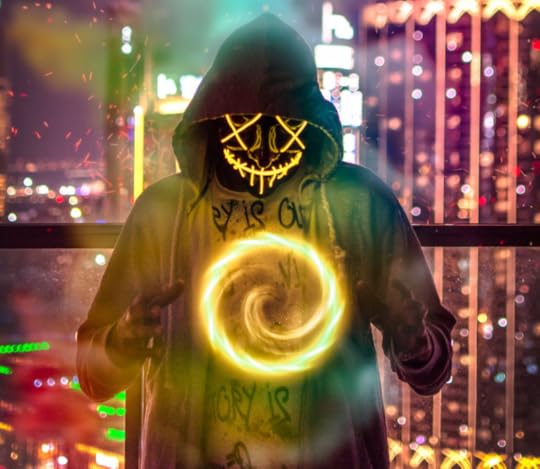
I know there are all sorts of stories out there for all types of readers. This is why there are many kinds of writers. My dear friend Sharon Hughson LOVES sweet romance and Hallmark movies.
I tell her the body count isn’t high enough for me…then she *metaphorically* throws things at me.
Alas, even in sweet books and cozies, there will still be opposition though it won’t be the sort of opposition we’re going to talk about today. These stories have their place—TRUST ME (we’ll get there in a bit).
But evil, REAL evil is not a pet. It is nothing to toy with, though time and again humans do.
It’s in our nature.
Myth, Man & Evil
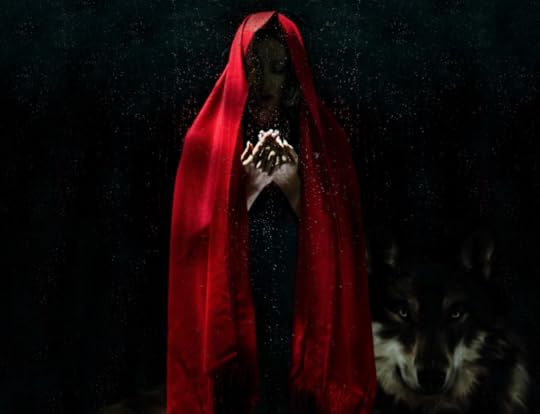
Evil has fascinated us from the dawn of time, a topic that’s said a lot more about the object than the agent. Humans are wired for story. We’ve been telling stories since we created language and communication.
And what makes these stories interesting is some overwhelming force the hero MUST CONQUER or die trying or all is lost. The best stories generally have a villain, and the badder the villain the better the story as we talked about last time.
Humans have always wrestled with the idea of good and evil, right and wrong, the origin of evil, etc. Virtually every faith on the planet explored and explicated good and evil in great detail long before any of us came along to form an opinion.
Myth and story have also added much to the conversation directly or obliquely. Beowulf, Chaucer, Shakespeare, etc.
Wanna talk about good and evil? Read Greek mythology O_O.
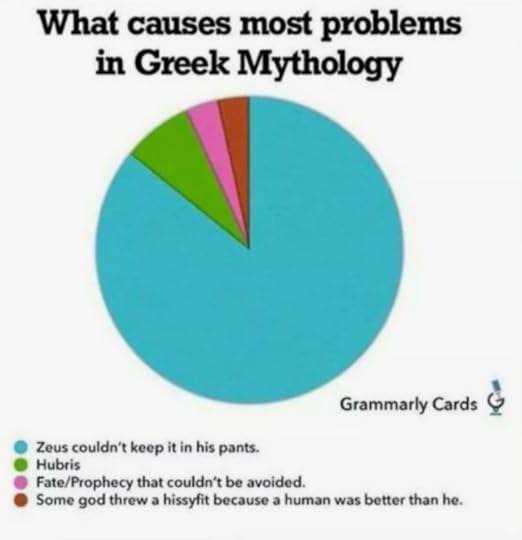
From Dante’s Inferno to Milton’s Paradise Lost to Goethe’s Faust, the audience is privy to glean all varieties of grim and gory images of hell and all its endless torments. What would happen to those evil-doers who failed to follow a certain moral standard.
Oddly, much of this inflammatory literature—*bada bump snare*— has done more to inform people what ‘hell’ would be like than was ever mentioned in the Bible.
Hell was big business in the Middle Ages, mostly because horror movies hadn’t yet been invented.
Evil & The Age of Reason

By the middle of the 19th century, science was getting a toehold and taking over areas previously dominated by religion.
Yet, once we careered into the 20th century, psychiatry was blazing untouched paths with new technology, pharmaceuticals, theories, tests, trials, and the chrome-plated word ‘SCIENCE.’
These days (in regards to ‘evil’) neuroscientists are trying to reverse engineer what is going wrong with the brain using fMRI machines. IS there some sort of a mechanical glitch that makes one person choose cruelty over kindness?
Of course, there is one camp that claims that evil people are ‘born that way’ and cite images of some brain doo-hickey not lining up with a cerebral thingamabob. See, they can’t help it! We need a factory recall on these broken evil brains.
Ah, but then they’re countered with the opposition who cite the wonderful marvelous plasticity of the human brain. That we can’t simply look at one shot in time and make any judgement because brains are very malleable, etc. etc.
SEE how fascinating evil is and we aren’t even in a STORY?
This is why friggin’ thousands of years later, we humans have a HADRON COLLIDER that could possibly create a miniature BLACK HOLE.
MEANWHILE, we probably also have some @$$hat who’s fantasizing about tossing kittens into that black hole and ZERO answers as to WHY he’d DO THAT.
Sigh. We deserve the meteor strike.
Evil: Fun & Games Aside
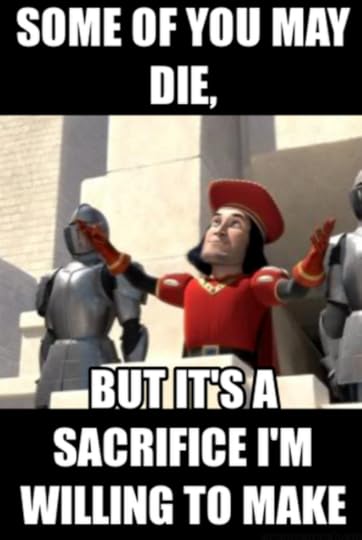
Evil is always an interesting topic because there are never clean and tidy answers. I believe this is what makes for the best stories and the best villains.
I’ve been really sick lately. REALLY sick. I’ve had to postpone my Villains class twice because of bronchitis, but I think it worked out for the best because I’ve revamped the entire thing after reading Ken Follet’s Pillars of the Earth.
***It’s gonna be EPIC, or so the cold medicine voices tell me. Sign up here for Dark Arts: Building Your Villain, and use New20 for $20 off.
Anyway…
Part of me wanted to write Follet hate mail. I hated the book as much as I loved it…for the first sixteen or so hours. Then the ratios shifted more to the loving it side.
Alas, loaded to the gills with medicine, I’m sure my nerves were already shot, but I kept having to stop the recording.
***I listen to mostly audio books, so throwing books across the room means a cracked phone.
There were a number of times I almost quit. My nerves were shredded. I was a wreck. The villains? I didn’t dislike them. Didn’t hate them. I loathed them. Defeat wasn’t good enough, and I strongly doubted ruination was good enough either. Nothing would make me feel better.
N-O-T-H-I-N-G.
There was literally NOTHING that could be done to these characters that would have satisfied my bloodlust.
And, when I calmed down, I thought, ‘What a strange reaction.’ I honestly cannot remember a book that distressed me that much other than maybe Stephen King’s ‘It‘ (the people of Derry, Maine, NOT the clown).
Then, I did what I always do and I pulled the story apart. Reverse engineered the experience and saw the error of my ways.
Now, in fairness, I teach a lot on antagonists and what I call the BBT (Big Boss Troublemaker)—the person/entity responsible for the core story problem.
One of the reasons I read so prolifically is I am always wanting to learn, to uncover any blindspots…and Pillars of the Earth sucker punched me.
It Isn’t for Everyone
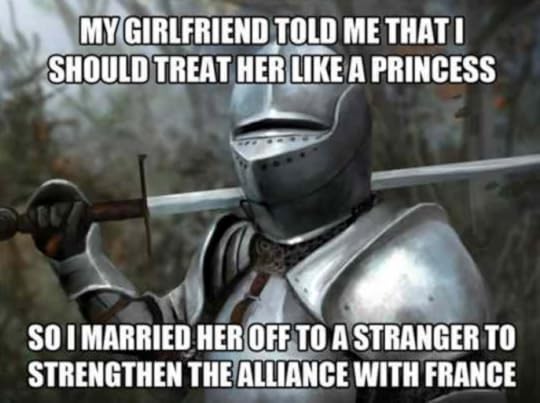
Like any book, Pillars of the Earth isn’t for everyone. It nearly wasn’t for me. Every time I considered turning it in, I kept going until I couldn’t stop because I HAD to know if there was any kind of justice in this mad, mad world.
And there you have it.
We are ALL wired with a sense of right and wrong. Even a sociopath has a sense of justice.
Read Martha Stout’s The Sociopath Next Door. A sociopath might not lose any sleep emptying your bank account, but would be horrified if you did the same to him.
Follet masterfully wove situations where I was rendered utterly and hopelessly powerless.
What is the epitome of being a victim? ZERO POWER. When evil strikes, what does it do to a person?
It strips away their power.
From money crimes to sex crimes, to hate crimes to murder it’s the same. Arson, abduction, terrorism, shootings, burglaries, large-scale vandalism, gossip, slander, lies, it hits us all in the same place.
It makes us afraid and vulnerable and impotent.
What makes it worse? When we KNOW who’s done this, but this is a person no one can touch.
This was what made me practically foam at the mouth reading Pillars of the Earth. Because the story is (loosely) based on actual history. In the Middle Ages, nobility and high-ranking clergy got away with a LOT of really, really bad things.
Talk about powerlessness to the power of a thousand.
*Kristen punching things* *grabbing for inhaler* *ponders subscribing to Hallmark channel*
Yet, it kept me listening (turning pages) because I could not rest until the world was set right and justice was served. I wasn’t even sure it would be or could be. And if it was, HOW?
THAT, my friends, is some fine storytelling (so I am extremely glad I didn’t return the book).
Evil & The Lenses of Power
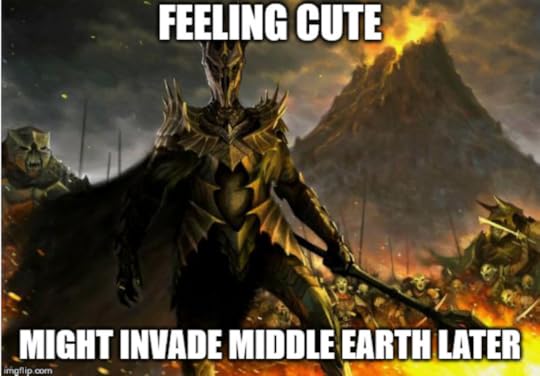
After finishing Pillars of the Earth I thought about other iconic villains. Last time, I mentioned how often villains are the hero of their own story, that we can (Hint: we CAN, but don’t HAVE to) give them an empathetic POV.
This said, Sauron has NOTHING empathetic about him. He craves power for the sake of power no matter the cost or the casualties.
Considering Tolkien drew off his experiences from WWI (not WWII), it’s reasonable to deduce that Sauron is a proxy for the Central Powers. A force rising and gathering strength, bent on destroying all that resists for one goal—complete domination.
Voldemort was another villain who made the heroes shine brighter because he was darker than dark. Maybe he had some motivation somewhere, but the more he destroyed, the more we grieved.
The more he killed, the more people we mourned and the stronger our thirst for vengeance justice.
There was a toxic imbalance in the universe that HAD to be set RIGHT.
Much of what goes into forming villains that gets underneath the audience’s skin is to understand—really understand our story—make sure it is strong enough and then search out those pain points that will likely exist in our readers.
The pain points won’t be the same for all stories.
Evil & To the Pain
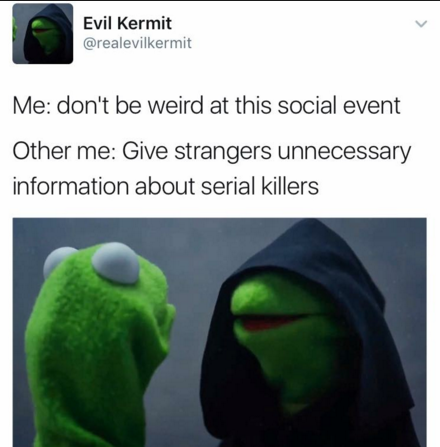
For instance, Follet, used history and the rules of the church and the laws and customs of the time to vex the ever loving bejeezus out of me *great gnashing of teeth.*
One of the reasons I got so ridiculously upset was because I’m a history buff, and knew what these folks could get away with. I also knew they were exploiting the chaos of the civil war to break laws that, in a time of peace, would have had them hanged.
This said, understanding these realities from an academic point of view is one thing. Watching these horrors play out in story, through the eyes of characters is vastly different.
Especially when in the heads of the villains.
*washes brain with bleach*
To use a very different example, but one that had a similar effect.
How many of you read or saw the movie ‘The Help‘? When Hilly Holbrook built the bathroom specifically for ‘the help,’ I saw red.
But when Hilly fired Minny for refusing to go outside to use ‘the help’s’ bathroom during a dangerous storm and for using the guest bathroom instead?
Then she unnecessarily slandered Minny’s name insinuating she was a thief, thus making Minny essentially unemployable?
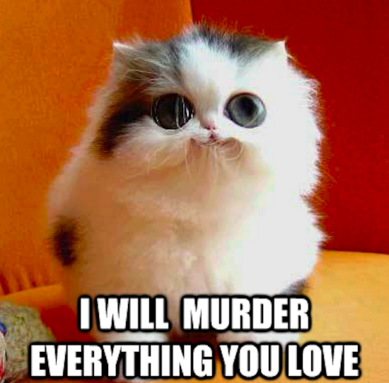 Me.
Me.What made this whole tableau so infuriating was technically Hilly (villain) hadn’t done anything wrong. In fact she had plenty of high society ladies there by her side telling she was the victim, poor dear.
*growls*
Of course the wrong Minny suffers is only one of many, inflicted by a toxic, deluded, and diseased culture. We hate it and every time the women we’ve grown to love suffer, we suffer.
And then—FINALLY—there is victory. We can celebrate!
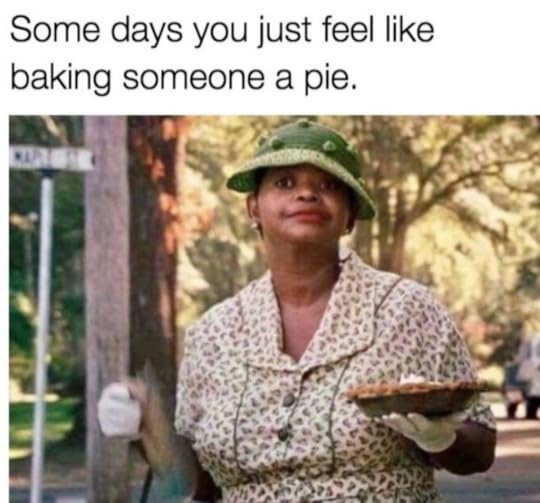
Depending on genre will depend on what pain point you’ll want to exploit, how hard you’ll want to push, and how to reasonably give your reader the satisfying ending they crave (that doesn’t feel too cookie-cutter).
How can we make our reader feel helpless? What ways can our villain strip away their sense of power? Can we make it seem our ‘good guys’ will never get their power back? Is there a way our villain can hide behind the authorities?
There are a lot of ways we can upset the main character’s world, but largely it is going to be with yanking the rug from under his/her feet.
If we can get a resounding cry of, ‘That isn’t FAIR!’ from our readers?
All the better.
Fiction & the Fight Against Evil
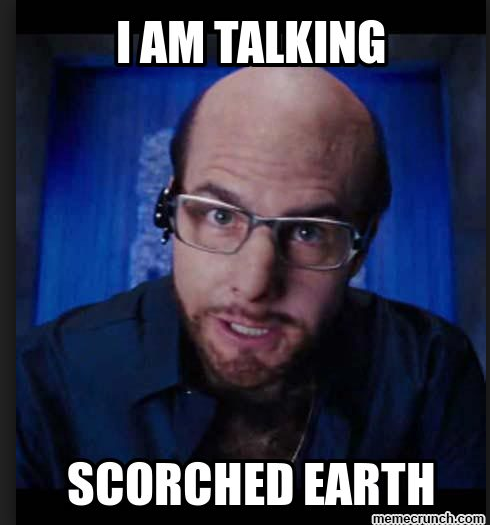
All too often, fiction gets dismissed as foolishness. Fantasy. It’s a waste of time. Is it? Or do stories serve as humanity’s conscience? They have for more than several thousand years. Don’t see why that would suddenly change.
Samsung just released a giant flatscreen television they’re literally calling The Wall. I’m guessing no one in marketing has read Fahrenheit 451.
***Unless the marketing staff are mostly Gen Xers, then they’re probably being smart@$$es.
Bladerunner, Do Androids Dream of Electric Sheep, 1984, Brave New World, Animal Farm, the list goes on. Frivolous brain candy or cautionary tales?
I believe fiction is the safe place, the mental holodeck where we can experience catharsis. Fiction allows us to explore a whole pallet of human emotions, some of them nice like love, comfort and nostalgia. Perhaps a story of simpler times and family *nods to Sharon*.
Other stories? We get to deal with, explore, understand outrage, anger, grief, injustice, the less ‘socially acceptable’ feelings in our modern world.
Villains allow us to have that face-off with evil and test our mental and psychic mettle. We can at least—in theory—answer the question, ‘What are we made of?’
Because the truth is, we don’t know.
I’m certainly hoping I never know.
All arguments of evil, villains, nature, nurture, and brain glitches aside, we don’t know what any of us are capable of with the right set of circumstances.
And if we’re smart, that should scare us.
In the End
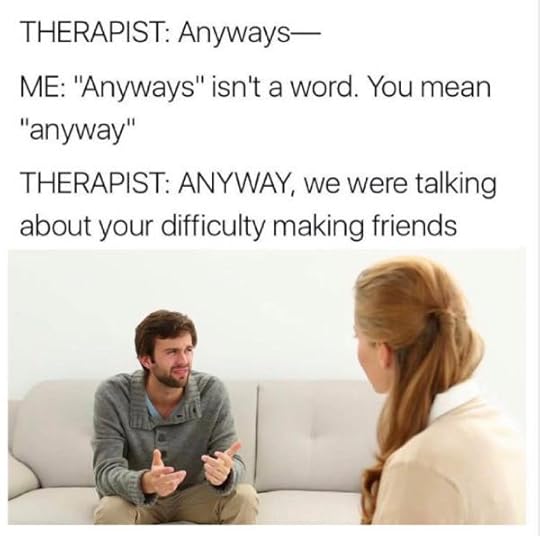
The debate about evil will rage on, but that means people will keep craving new stories. Yes, we humans have our skyscrapers, espresso machines, yoga dress pants and our Hadron Collider.
We might even one day get our tiny black hole. Yet, we still have our psychopath out there with a box of kittens. Evil still exists.
But we’ll get balance.
When our psycho tosses those balls of adorable fluff into that eensy black hole, the joke will be on him. Because if any creature could discover a multiverse it would be a kitten.
They’ll return in force—with an army of sentient socks and Tupperware lids to negotiate peace with Earth.
They’ll leave us unharmed, if we will just let them have all the catnip, tuna, and Dan…wearing a Princess Leia metal bikini with a zap collar.
What are your thoughts?
Can you think of villains from story that had nothing redeemable and the reason you turned pages was to see their demise? Or movies or series? What are some examples you can think of when it comes to stories that undid you and really made you think/made you emotional?
I love hearing from you! And maybe some suggestions for my reading list 



